
Spiraea nipponica 'Snowmound' Spirea 2 Wagon Wheel
Spiraea nipponica 'Snowmound' is a low-arching shrub that is urban tolerant and has pure white inflorescences that blanket the plant in late spring. Snowmound Nippon Spirea is a compact and later- flowering complement to Vanhoutte Spirea (Spiraea vanhouttei). It is one of the few small shrubs with a vased and arching growth habit. FEATURES Form

Spiraea nipponica 'Snowmound' Worfield Plants
Spiraea nipponica 'Snowmound' Tosa spiraea 'Snowmound' 'Snowmound' is a spreading medium-sized deciduous shrub with arching branches bearing small obovate leaves and short lateral shoots ending in rounded clusters, to 4cm in width, of small white flowers Synonyms Spiraea 'Snowmound' Spiraea nipponica var. tosaensis misapplied Join the RHS
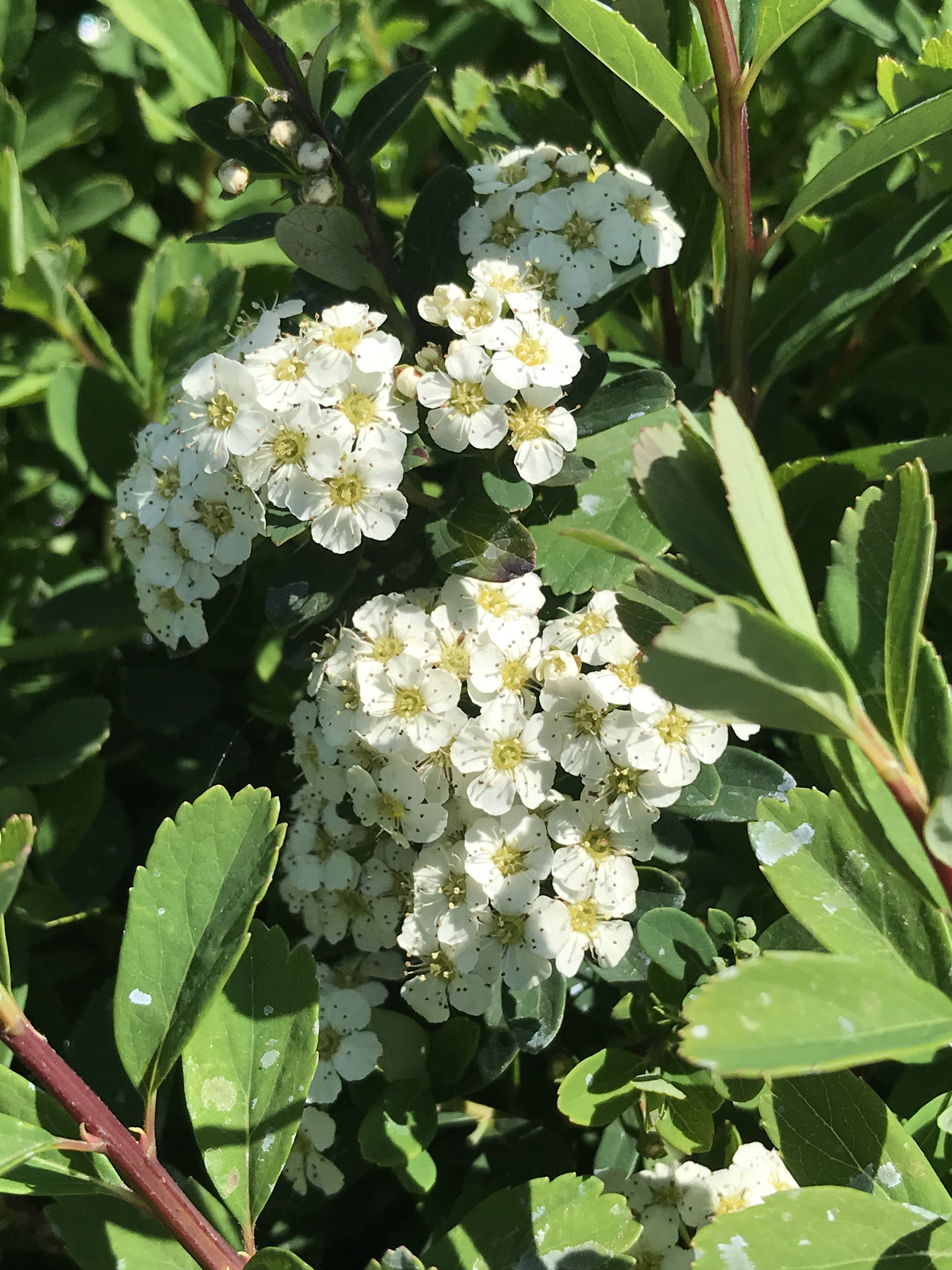
SPIRAEA nipponica 'Snowmound' emerisa gardens
Common names: Nippon spirea, snowmound Nippon spirea All pictures (1) Share Overview More Information Care Knowledge Cultivars Photo Gallery (1) Spiraea nipponica 'Snowmound' (Snowmound Nippon spirea), flowers; © Sharon Yiesla Explore More Donate
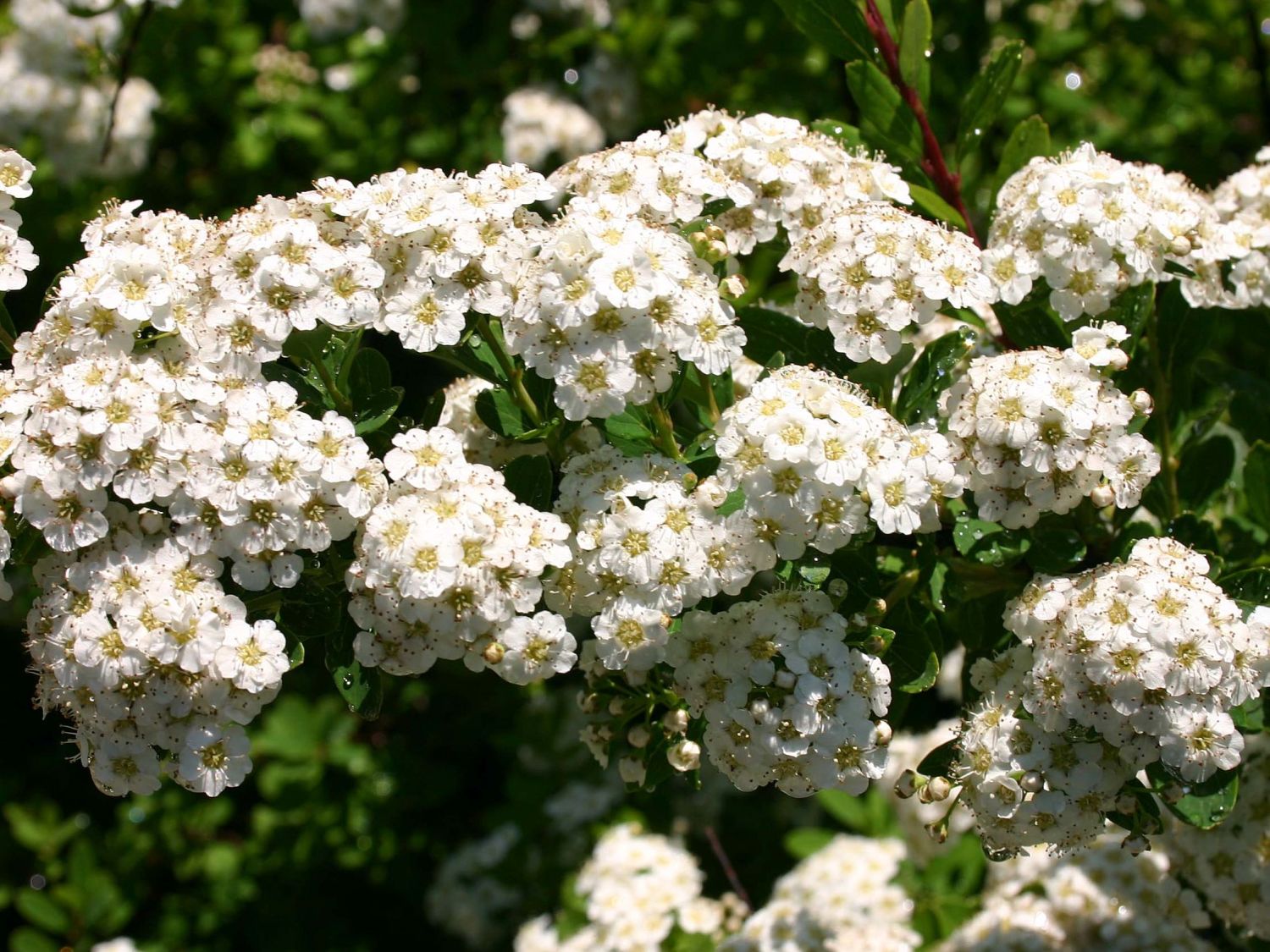
Japanische Strauchspiere 'Snowmound' Spiraea nipponica 'Snowmound' Baumschule Horstmann
Snowmound Spirea. Snowmound spirea is by far the most popular cultivar of Spiraea nipponica. It has a neat, dense habit and produces abundant white blooms along arching branches in June. The genus Spiraea consists of small to medium sized flowering shrubs with a fine-textured twiggy mounding habit. The small simple leaves are generally lance.

Common Name Spiraea nipponica 'Snowmound'
Spiraea nipponica 'Snowmound' Common name: Snowmound Spirea Pronunciation: sp-i-REE-a nip-PON-i-ka Family: Rosaceae Genus: Spiraea Synonyms: S. n. var. tosaensis 'Snowmound' Type: Broadleaf Native to (or naturalized in) Oregon: No Deciduous shrub, 3-5 ft (0.9-1.5 m) tall, equal width, upright, rigid form, rounded.

Spirea ‘Snowmound’ Plant Profile Sylvan Gardens Landscape Contractors
Spirea is a good plant to use for hedging, for privacy lines, as a background for showier flowers, or massed along a sloping part of your yard for erosion control. How and When to Plant Spirea Dig a hole where you want to plant a spirea shrub the same height as the root ball and two to three times wider than the roots.

Spiraea nipponica 'Snowmound' Multiplants
Spiraea nipponica 'Snowmound' Tosa Spirea Hardy FROM £29.99 98% (7 Reviews) Garden Club Members Price: FROM £26.99 JOIN TODAY Awarded an RHS Award of Garden Merit A mound of dark green foliage topped with small white flowers Resembling snow on top of a mound Delivery Information View Product Description Choose available pack sizes: Add To Basket

Spiraea nipponica 'Snowmound' (Strauchspiere 'Snowmound')
The Spiraea nipponica 'Snowmound' is ready to deliver. With its mid to late-spring show, this shrub is an excellent bloomer. Many designers use this spirea as a substitute for the larger Bridal Wreath spirea. This spirea is tight and more compact, and it features a beautiful arching habit.
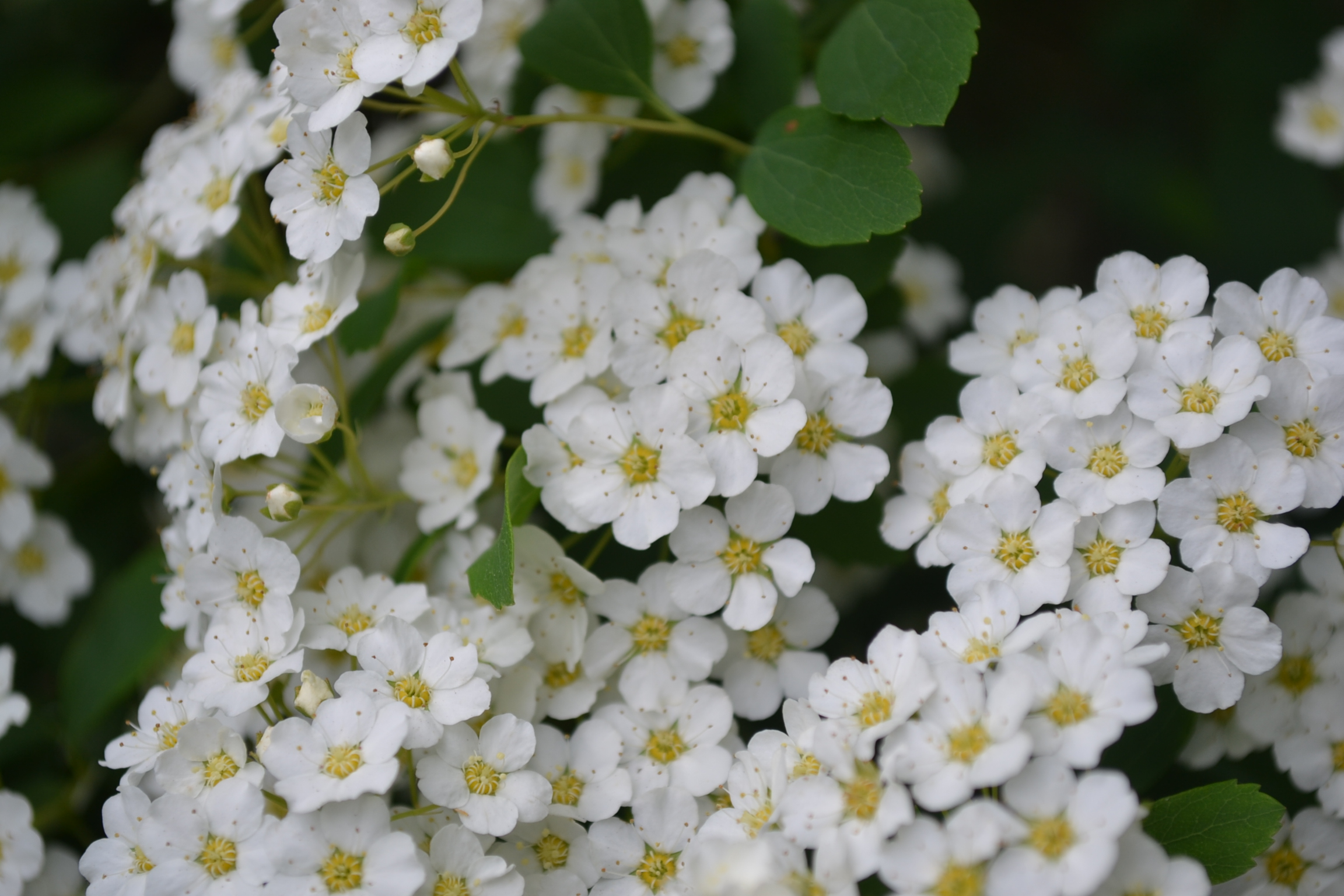
Snowmound Spirea is a late spring to early summer flowering shrub.
Snowmound spirea is a flowering shrub that is native to East Asia. It is a popular plant in gardens and landscapes due to its showy white flowers that bloom in late spring or early summer. Snowmound spirea is a deciduous shrub, meaning it will lose its leaves in the fall. The leaves are ovate, or egg-shaped, and have toothed margins. The flowers are borne in clusters of 4-9 and are each about.

Spiraea nipponica Snowmound Spirée du Japon, élégante et blanche
Spiraea nipponica, commonly called spirea, is a dense, upright, mounded, deciduous shrub that typically matures to 5-8' tall with a slightly larger spread. It is native to the island of Shikoku, Japan. Obovate to elliptic leaves (to 1 1/4" long) are dark green above but blue-green beneath with round toothed apices.
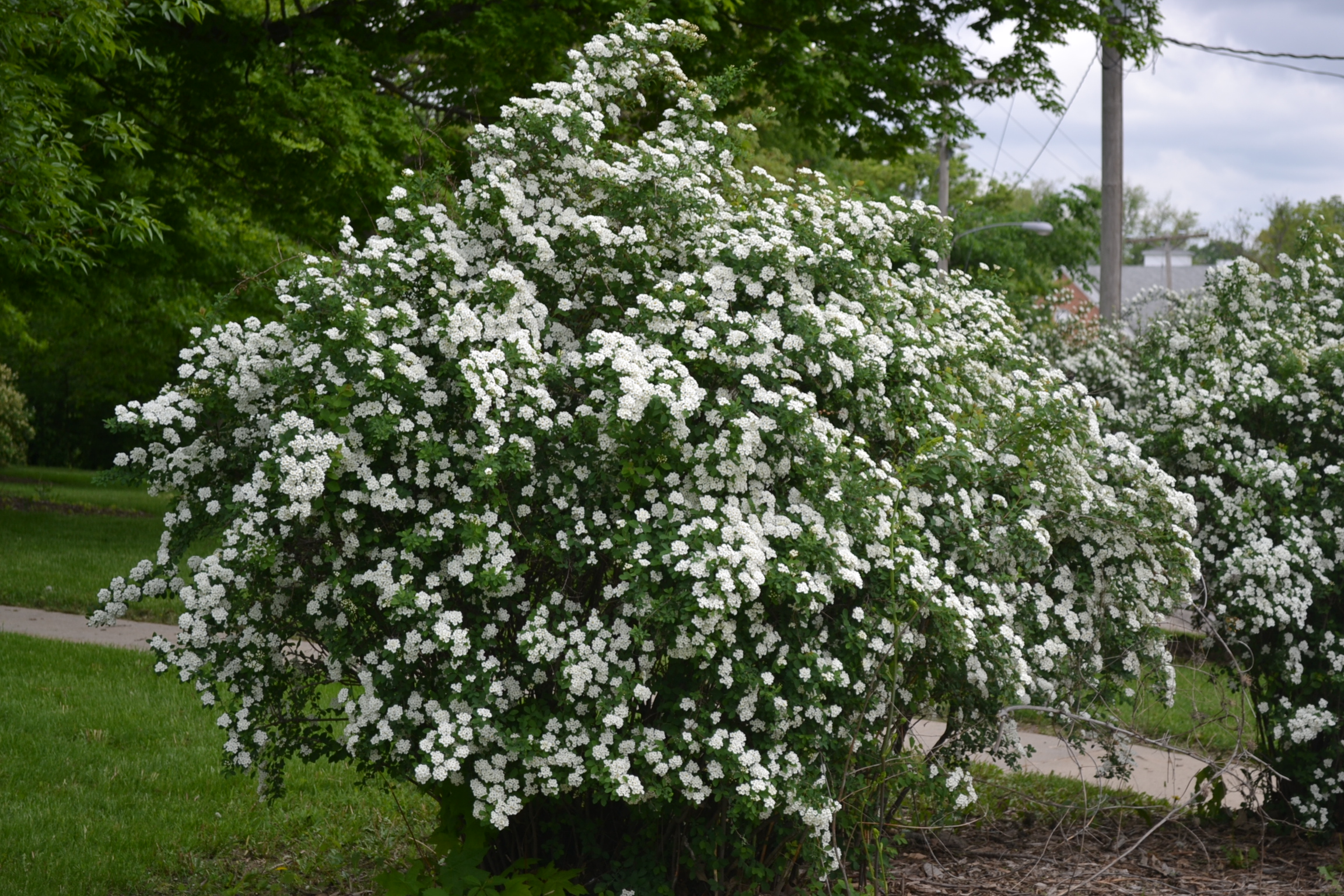
Snowmound Spirea is a late spring to early summer flowering shrub.
Spiraea nipponica, or Snowmound Spiraea, is a drought-tolerant, flowering, deciduous shrub growing rapidly to its full size. For most Spiraea species, the height can range from 5 to 8 feet high and an equal spread; however, Snowmound tends to be a bit smaller with a 2 to 4 foot height.
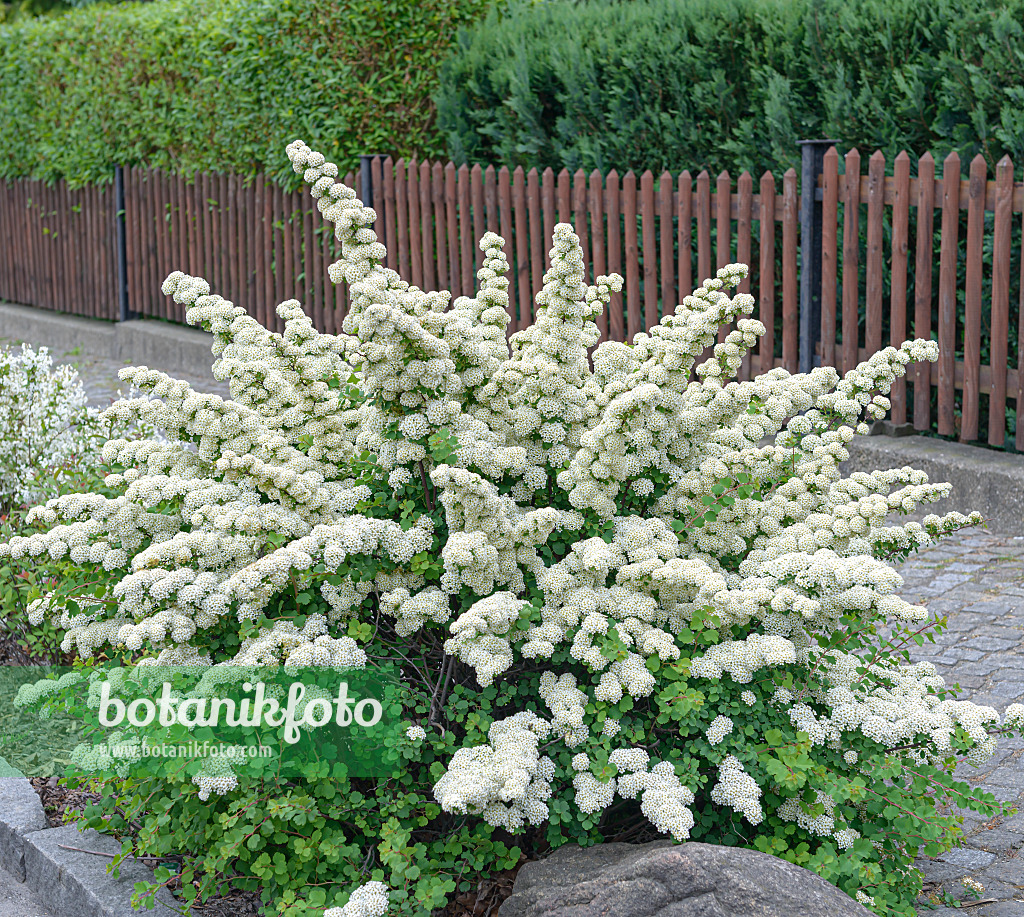
Images Spiraea Nipponica 'Snowmound' Images of Plants and Gardens botanikfoto
The Plant Guide Browse the Full Plant Guide Spiraea nipponica 'Snowmound' Spiraea nipponica 'Snowmound' spy-REE-ah nip-PON-ih-kah Spiraea nipponica 'Snowmound' This fast-growing, upright specimen has very attractive small, blunt, dark blue-green leaves and arching branches. Bowl-shaped, pure white flowers are borne midsummer in large numbers.
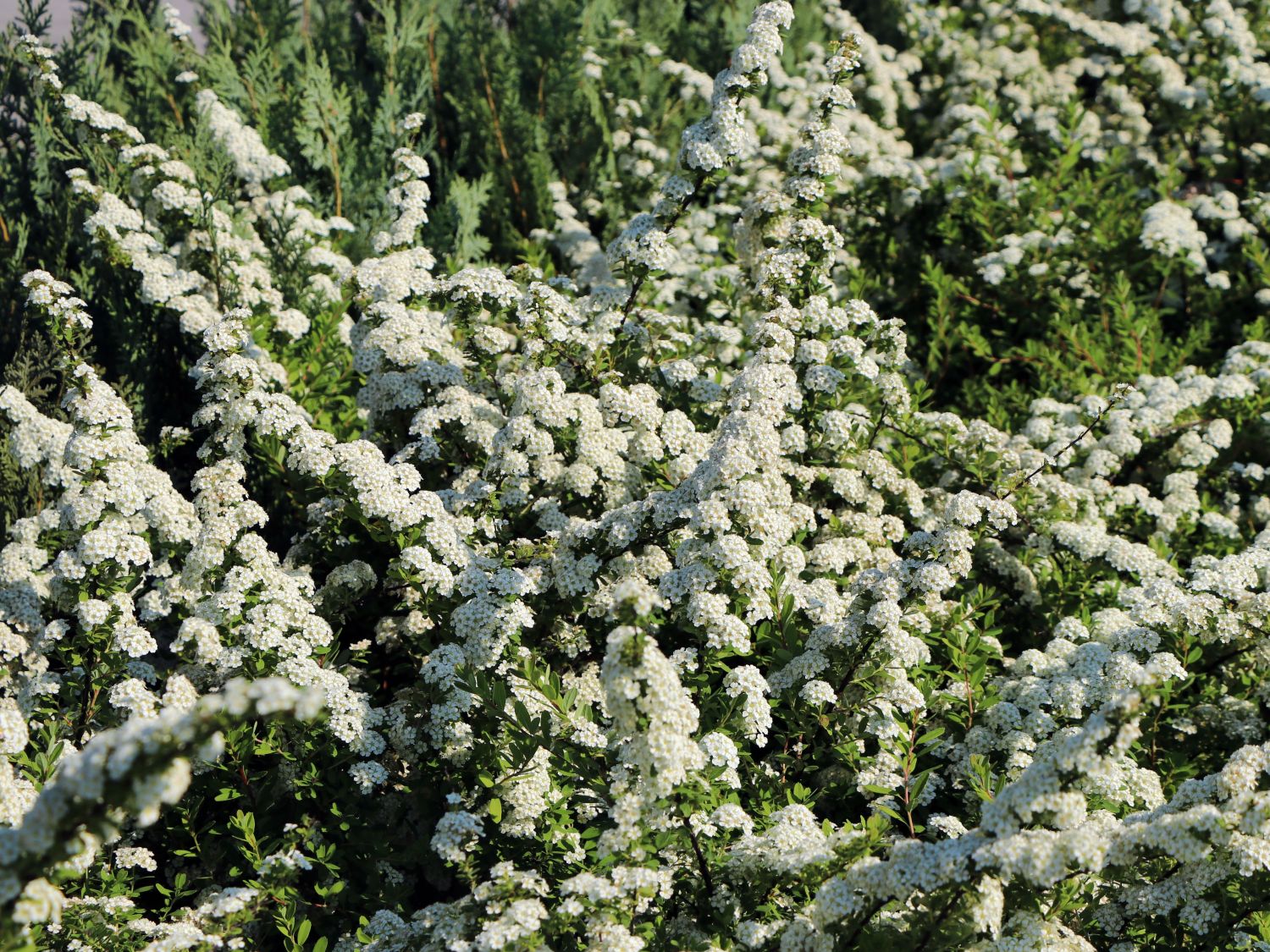
Japanische Strauchspiere 'Snowmound' Spiraea nipponica 'Snowmound' Baumschule Horstmann
Description: Snowmound spirea has branches that will gracefully arch. It is low-maintenance but can be pruned into a shape you prefer. The dense, blue-green foliage changes to a copper-yellow. Pure white clusters of flowers bloom in May, almost completely covering the branches. This shrub has no major pests or diseases.
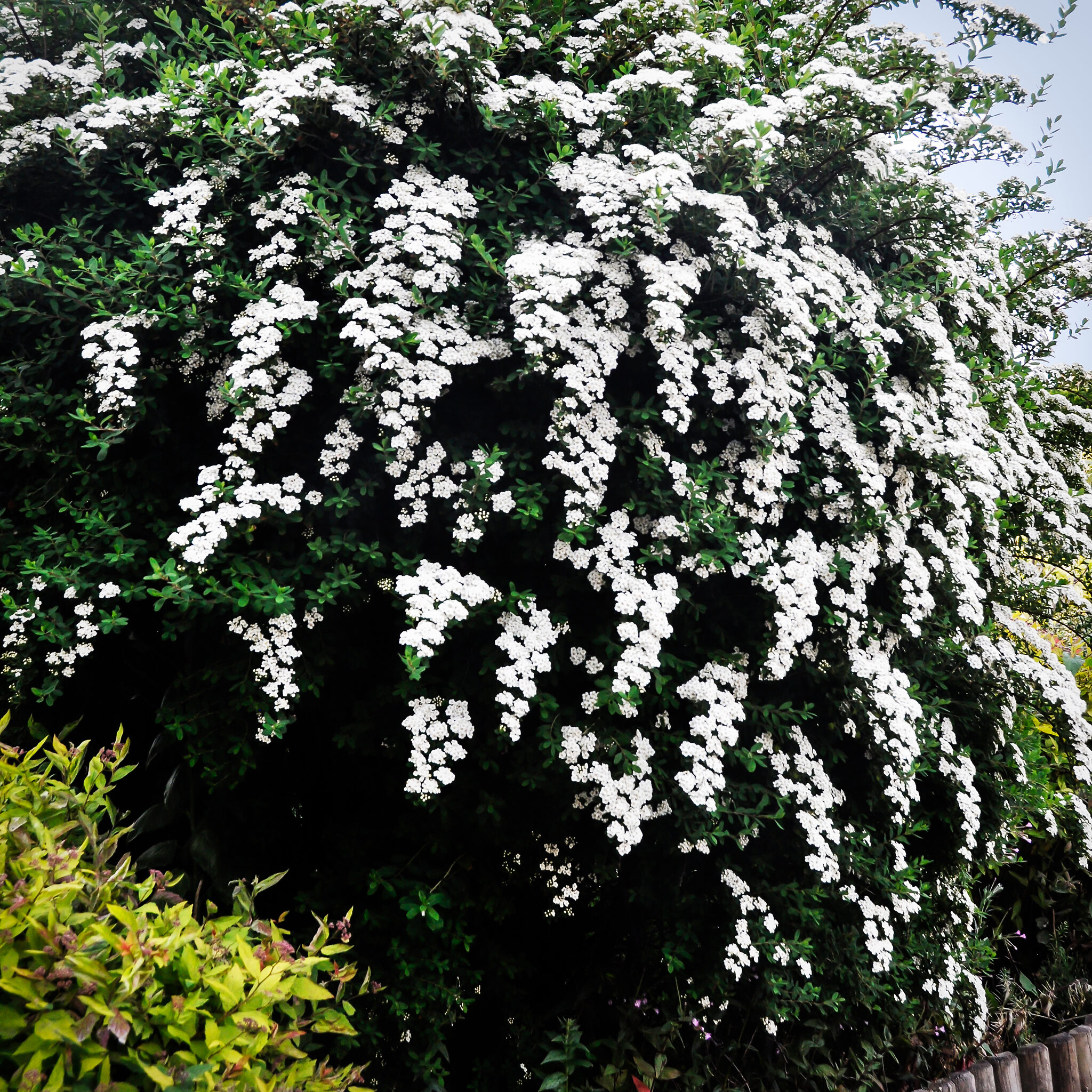
Snowmound Spirea For Sale The Tree Center
Fruit Color Brown. Mature Plant Size (H x W) 4-5' x 4-5'. Snowmound Spirea is a graceful and elegant compact shrub. Its foliage is thick and blue-green in appearance. White flowers occur in late spring to early summer and completely cover the plant on the prior year's wood. The leaves turn from dark blue-green to an attractive pale yellow in fall.

Spiraea nipponica 'Snowmound' spiraea Идеи посадки растений, Кустарники, Озеленение двора
Nippon spirea ( Spiraea nipponica ), also known as snowmound Nippon spirea, has an upright cascading habit, snow-white flowers and blue-green foliage that turns yellow in fall. TRY THESE PROVEN WINNERS ® VARIETIES Spirea comes in a range of forms, flower and foliage colors.

Spiraea nipponica 'Snowmound' Spierstruik De Tuinen van Appeltern
Snowmound Spirea will grow to be about 4 feet tall at maturity, with a spread of 4 feet. It tends to fill out right to the ground and therefore doesn't necessarily require facer plants in front. It grows at a fast rate, and under ideal conditions can be expected to live for approximately 20 years.